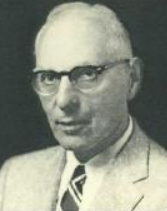Alternative medicine is any practice that aims to achieve the healing effects of medicine despite lacking biological plausibility, testability, repeatability or evidence of effectiveness. Unlike modern medicine, which employs the scientific method to test plausible therapies by way of responsible and ethical clinical trials, producing repeatable evidence of either effect or of no effect, alternative therapies reside outside of mainstream medicine and do not originate from using the scientific method, but instead rely on testimonials, anecdotes, religion, tradition, superstition, belief in supernatural "energies", pseudoscience, errors in reasoning, propaganda, fraud, or other unscientific sources. Frequently used terms for relevant practices are New Age medicine, pseudo-medicine, unorthodox medicine, holistic medicine, fringe medicine, and unconventional medicine, with little distinction from quackery.
Experimental cancer treatments are mainstream medical therapies intended to treat cancer by improving on, supplementing or replacing conventional methods. However, researchers are still trying to determine whether these treatments are safe and effective treatments. Experimental cancer treatments are normally available only to people who participate in formal research programs, which are called clinical trials. Occasionally, a seriously ill person may be able to access an experimental drug through an expanded access program. Some of the treatments have regulatory approval for treating other conditions. Health insurance and publicly funded health care programs normally refuse to pay for experimental cancer treatments.

Quackery, often synonymous with health fraud, is the promotion of fraudulent or ignorant medical practices. A quack is a "fraudulent or ignorant pretender to medical skill" or "a person who pretends, professionally or publicly, to have skill, knowledge, qualification or credentials they do not possess; a charlatan or snake oil salesman". The term quack is a clipped form of the archaic term quacksalver, from Dutch: kwakzalver a "hawker of salve". In the Middle Ages the term quack meant "shouting". The quacksalvers sold their wares at markets by shouting to gain attention.

A bone tumor is an abnormal growth of tissue in bone, traditionally classified as noncancerous (benign) or cancerous (malignant). Cancerous bone tumors usually originate from a cancer in another part of the body such as from lung, breast, thyroid, kidney and prostate. There may be a lump, pain, or neurological signs from pressure. A bone tumor might present with a pathologic fracture. Other symptoms may include fatigue, fever, weight loss, anemia and nausea. Sometimes there are no symptoms and the tumour is found when investigating another problem.

Craniosacral therapy (CST) or cranial osteopathy is a form of alternative medicine that uses gentle touch to feel non-existent rhythmic movements of the skull's bones and supposedly adjust the immovable joints of the skull to achieve a therapeutic result. CST is a pseudoscience and its practice has been characterized as quackery. It is based on fundamental misconceptions about the anatomy and physiology of the human skull and is promoted as a cure-all for a variety of health conditions.
Glucosamine (C6H13NO5) is an amino sugar and a prominent precursor in the biochemical synthesis of glycosylated proteins and lipids. Glucosamine is part of the structure of two polysaccharides, chitosan and chitin. Glucosamine is one of the most abundant monosaccharides. Produced commercially by the hydrolysis of shellfish exoskeletons or, less commonly, by fermentation of a grain such as corn or wheat, glucosamine has many names depending on country.
The Burzynski Clinic is a clinic selling an unproven cancer treatment, which has been characterized as harmful quackery. It was founded in 1976 and is located in Houston, Texas, in the United States. It offers a form of chemotherapy originally called "antineoplaston therapy" devised by the clinic's founder Stanislaw Burzynski in the 1970s. Antineoplaston is Burzynski's term for a group of urine-derived peptides, peptide derivatives, and mixtures. There is no accepted scientific evidence of benefit from antineoplaston combinations for various diseases, and the Clinic's claimed successes have not been replicated by independent researchers. The therapy has been rebranded in various ways over the years to mirror fashions in medicine, for example as a kind of "immunotherapy". The therapy is administered through the ruse of running a large numbers of clinical trials, which long-time Burzynski lawyer Richard Jaffe has described as "a joke".

Glioblastoma, previously known as glioblastoma multiforme (GBM), is the most aggressive and most common type of cancer that originates in the brain, and has a very poor prognosis for survival. Initial signs and symptoms of glioblastoma are nonspecific. They may include headaches, personality changes, nausea, and symptoms similar to those of a stroke. Symptoms often worsen rapidly and may progress to unconsciousness.

Max Gerson was a German-born American physician who developed the Gerson Therapy, a dietary-based alternative cancer treatment that he claimed could cure cancer and most chronic, degenerative diseases.
An oncolytic virus is a virus that preferentially infects and kills cancer cells. As the infected cancer cells are destroyed by oncolysis, they release new infectious virus particles or virions to help destroy the remaining tumour. Oncolytic viruses are thought not only to cause direct destruction of the tumour cells, but also to stimulate host anti-tumour immune system responses. Oncolytic viruses also have the ability to affect the tumor micro-environment in multiple ways.

Sunitinib, sold under the brand name Sutent, is an anti-cancer medication. It is a small-molecule, multi-targeted receptor tyrosine kinase (RTK) inhibitor that was approved by the FDA for the treatment of renal cell carcinoma (RCC) and imatinib-resistant gastrointestinal stromal tumor (GIST) in January 2006. Sunitinib was the first cancer drug simultaneously approved for two different indications.

Alternative cancer treatment describes any cancer treatment or practice that is not part of the conventional standard of cancer care. These include special diets and exercises, chemicals, herbs, devices, and manual procedures. Most alternative cancer treatments do not have high-quality evidence supporting their use and many have been described as fundamentally pseudoscientific. Concerns have been raised about the safety of some purported treatments and some have been found unsafe in clinical trials. Despite this, many untested and disproven treatments are used around the world.

Energy medicine is a branch of alternative medicine based on a pseudo-scientific belief that healers can channel "healing energy" into a patient and effect positive results. The field is defined by shared beliefs and practices relating to mysticism and esotericism in the wider alternative medicine sphere rather than any sort of unified terminology, leading to terms such as energy healing or vibrational medicine being used as synonymous or alternative names. In most cases there is no empirically measurable energy involved: the term refers instead to so-called subtle energy. Practitioners may classify the practice as hands-on, hands-off, and distant where the patient and healer are in different locations. Many schools of energy healing exist using many names: for example, biofield energy healing, spiritual healing, contact healing, distant healing, therapeutic touch, Reiki or Qigong.
Nicholas James Gonzalez was a New York–based physician known for developing the Gonzalez regimen, an alternative cancer treatment. Gonzalez's treatments are based on the belief that pancreatic enzymes are the body's main defense against cancer and can be used as a cancer treatment. His methods have been generally rejected by the medical community. and he has been characterized as a quack and fraud by other doctors and health fraud watchdog groups. In 1994 Gonzalez was reprimanded and placed on two years' probation by the New York state medical board for "departing from accepted practice".
Regorafenib, sold under the brand name Stivarga among others, is an oral multi-kinase inhibitor developed by Bayer which targets angiogenic, stromal and oncogenic receptor tyrosine kinase (RTK). Regorafenib shows anti-angiogenic activity due to its dual targeted VEGFR2-TIE2 tyrosine kinase inhibition. Since 2009 it was studied as a potential treatment option in multiple tumor types. By 2015 it had two US approvals for advanced cancers.
Adenovirus varieties have been explored extensively as a viral vector for gene therapy and also as an oncolytic virus.
A significant amount of research has been performed on glycosaminoglycans, especially glucosamine and chondroitin, for the treatment of arthritis. These compounds are commonly marketed as nutritional supplements and numerous 'soft therapeutic claims' are made about their health benefits - especially in aging populations. Since glucosamine is a precursor for glycosaminoglycans, and glycosaminoglycans are major components of cartilage, ingesting glucosamine might nourish joints, and thereby alleviate arthritis symptoms. Authoritative opinions on the actual therapeutic value of these compounds have been very mixed.
Sharks Don't Get Cancer is a 1992 book written by I. William Lane and Linda Comac and published by Avery Publishing. Despite its title, the book does not claim that sharks never get cancer, only that they rarely do so, a fact which has been known since the first malignancy was found in a shark specimen in 1908. Lane and Comac further claimed that this was because shark cartilage contained cancer-fighting elements, and so that powdered shark cartilage is an effective treatment for cancer and numerous other conditions. However, there is no scientific evidence that shark cartilage is useful in treating or preventing cancer or any other disease. In 1996, Lane co-authored another book on the same subject, entitled Sharks Still Don't Get Cancer.

Intravenous Ascorbic Acid, is a process that delivers soluble ascorbic acid directly into the bloodstream. It is not approved for use to treat any medical condition.








